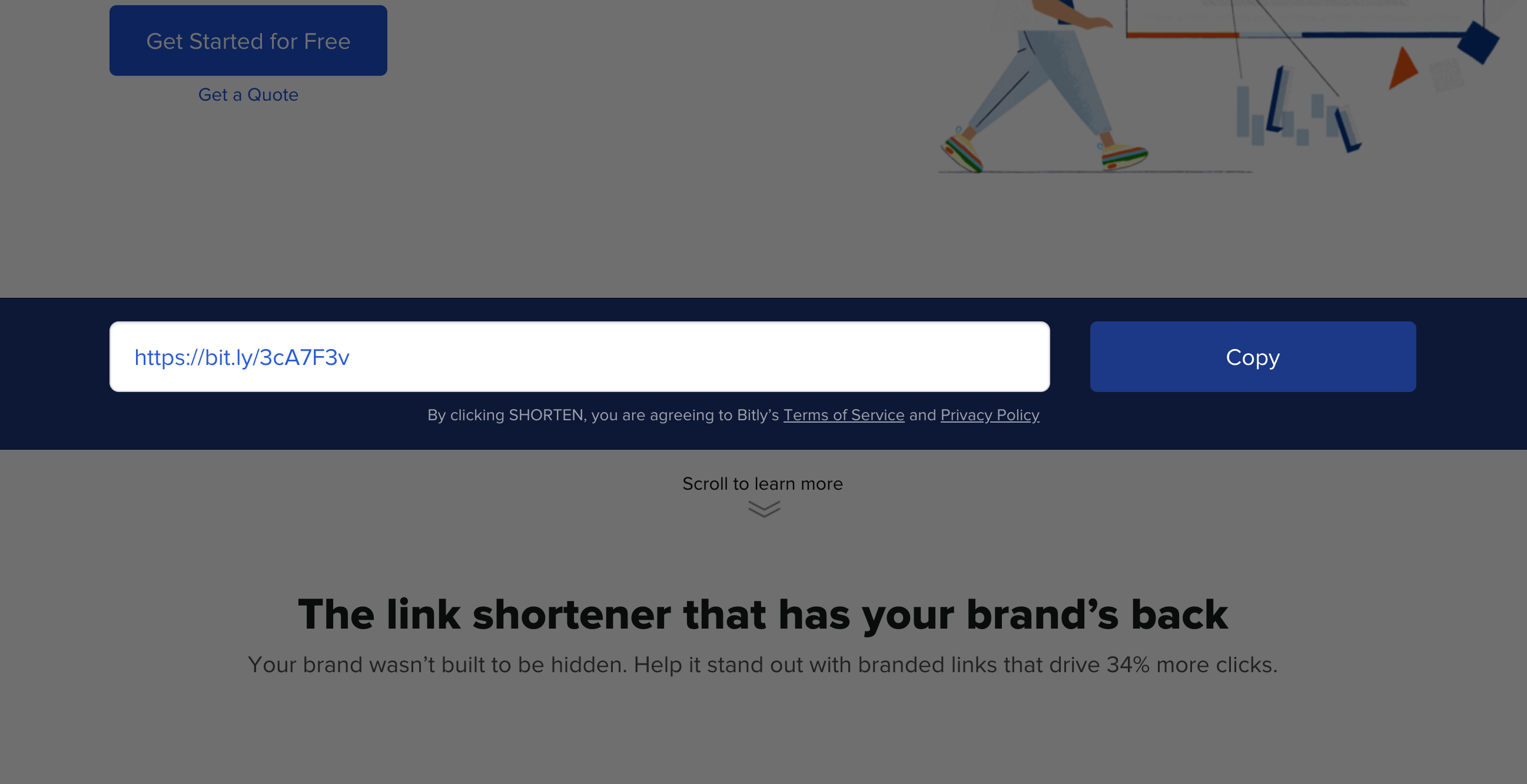Long URLs are neither easy to enter in the browser bar nor easy to share via social media. That’s why there are short URL services such as bit.ly or TinyURL. We explain when you should use URL shorteners – and when it’s better not to.
The maximum URL length is around 2,000 characters. But even a tenth of that is too already too long for link sharing via Twitter or manual input in the browser. Shorter is also always better when printing URLs in print media.
In general, the URL length is determined by where the respective target document is located in the website structure. In addition, there are factors such as slugs as indicative features of an SEO-friendly URL. These are generally more important than the final character length.
This is why URL shorteners exist that generate an alias address for the actual URL. This alias leads to the same location as the “clear address”, but only consists of a few characters.
Using such short URL services is easy: enter the target URL and click on the button to generate the link. Copy, share, done. The only question is: What is the benefit of a short URL?
What are the advantages and disadvantages of a short URL?
URLs are far more than just an address and a surfing standard. They are a tool with which you can generate trust among users. “Speaking URLs” show what content the page has, who offers this content and in what format this content is available. This trust is generated regardless of the length – the content is the important thing.
https://www.sistrix.com/ (Our homepage, 24 characters)
https://www.sistrix.com/ask-sistrix/seo-talks/ranking-factors#Content-Quality-How-Important-Is-High-Quality-Content
(Example subpage, 116 characters)

If, for example, the well-known short URL provider bit.ly generates a short version of this address, the URL is no longer able to speak. However, the number of characters in the link has shrunk to a manageable and post-friendly size.
Advantages of a short URL
- Creating a short URL is quick and easy with the respective services – even without registration.
- You save valuable characters for social media posts.
- Difficult URL content such as special characters do not appear in the short URL – the link looks clean.
- Nothing changes in the access data or the Onpage optimisation of the website – you don’t have to worry about an unpleasant http status code.
- Depending on the provider and the selected plan, the short links can be permanently valid.
The core advantage of a short URL is therefore user convenience – and it solves a typical problem of social media platforms.
Disadvantages of a short URL
- The short address does not allow any conclusions to be drawn about the content or the provider – which is why it is popular with Internet criminals. This image may also rub off on you.
- Depending on the provider and the selected plan, the short links may only be valid for a limited time – after some time they may lead to a 404 error page.
- Short URL services reserve the right to reassign a link after it has expired – which can lead to link hijacking.
- URL shorteners are third parties that collect data and, as a junction point, are vulnerable to attacks, the consequences of which can affect all users of the services.
The disadvantages make it clear that it depends on what you really want to achieve with the short URL and in what form you request it from a URL shortener. If you use the shortener’s services for free, you need to be aware of the long-term consequences for your website.
Conclusion
It is a little telling that Google discontinued its URL shortener in 2018: Short URLs are a double-edged sword that you should only use if the advantages of a short URL outweigh the disadvantages. However, as a quick fix for sharing links via social media etc., they are definitely a useful idea.